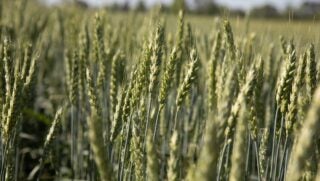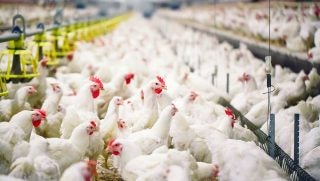Farmers can now get access to real-time measurements of temperature, humidity, CO2, rainfall, air quality, wind speed, light quantity and quality, soil moisture, soil temperature, pH, and nutrient composition, all from the modular sensors and cameras of a new technology called PheNode.
Researchers at the Donald Danforth Plant Science Center, a not-for-profit research institute, recently launched PheNode, a ‘smart’, farm-ready, solar-powered environmental sensor and phenotyping station for crops.
“With a suite of diverse sensors on the PheNode, we can continuously monitor field crops for growth rate, stem diameter, height, leaf shape, leaf angles, canopy closure, light interception and the relationship of these traits to enhanced canopy photosynthesis. The PheNode will help crop science innovators to identify ideal canopy architectural and leaf metabolic features to breed crops for increased yield,” said Nadia Shakoor, Ph.D., research scientist in the Todd Mockler laboratory. “We see a need for more sustainable crop production with minimal water and energy inputs, and a need to anticipate changing environmental conditions, like elevated CO2 levels, that will affect farming.”
The PheNode allows researchers, breeders and farmers to monitor directly within the plant canopy, providing crucial information for both crop improvement and precision agriculture.
“Direct canopy measurements are particularly challenging due to inherent difficulties in taking the measurements, high levels of temporal and spatial variation, and an inability to generalize local measurements to the landscape scale,” continued Shakoor. “The PheNode provides growers with an affordable and comprehensive crop phenotyping system that will provide a snapshot into a crop plant’s environment.”
A modular minirhizotron system is incorporated into one version of the PheNode to take images of crop roots in the soil, allowing observation of root growth and development in real time. The phenotyping station is powered by a solar panel with a backup battery, and all sensor data is stored locally and transmitted via Bluetooth or WiFi.
Development of the PheNode is part of a larger effort at the Danforth Center to take discovery from the laboratory to the marketplace.
“The PheNode uses quite sophisticated imaging and sensor technology that we use in advanced research to understand how plants work,” said James Carrington, Ph.D., president of the Danforth Center. “Delivering it to the farm will help growers make better decisions to manage their crops, reduce their environmental footprint and costs.”


